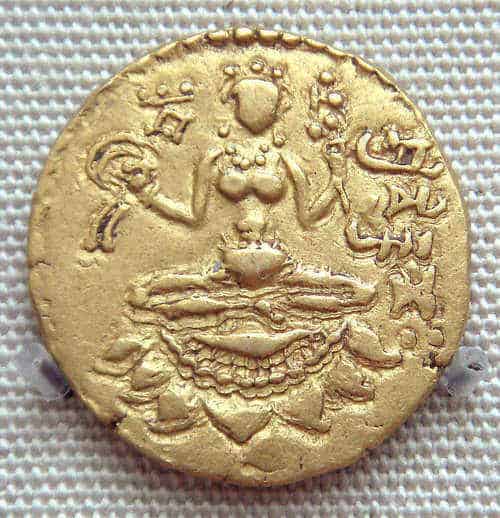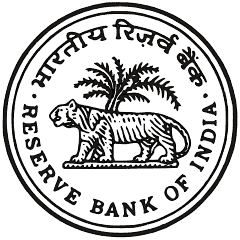The Indian cryptocurrency ecosystem is currently in turmoil. In April of 2018, the Royal Bank of India (RBI) saw fit to forbid banks from providing services to cryptocurrency exchanges. This prohibition came into effect in July of the same year, and was subsequently upheld by India’s Supreme Court.
As a result of the ban, many of India’s biggest exchanges have shut down, altered their business model, or relocated their operations to other countries. The good news is that Indians may still use Coinmama to acquire Bitcoin and the other cryptos we support. For more info, see our article: “How to Buy Bitcoin in India.”
Alongside the announcement of the ban, the RBI also raised the possibility of its own centrally controlled and issued cryptocurrency. In discussing the RBI’s potential fiatcoin, the agency’s Deputy Governor, BP Kanungo, was quoted as follows:
“…Reserve Bank of India will produce a report and they will explore the feasibility and desirability of issuing a digital currency by the central bank. These are issued by central banks, they constitute the liability of the central bank and they will be in circulation in addition to the paper currency. It also holds the promise of reducing the cost of printing of the notes.”
The RBI’s Potential “Fiatcoin”
Such central bank-controlled cryptos, as proposed by Mr. Kanungo, are unofficially and somewhat disparagingly referred to as “fiatcoins” by the crypto community. Fiatcoins are so-called as they closely resemble the digital form of regular fiat money, such as rupees. Despite their “blockchain” aspects, fiatcoins are functionally equivalent to rupees held in a bank account and suffer from the same downsides. To wit, fiatcoins are confiscatable, inflatable, censorable, non-anonymous, and so on.
Fiatcoins remove the primary advantages of cryptocurrencies. Whenever a centralized entity, be it a central bank, government, or corporation, assumes full control over any blockchain currency, then the distinct benefits which a true cryptocurrency offers to its users are entirely neutralized. The unique value proposition of a true cryptocurrencies rests on the fact that they’re not controlled by any single agency or cartel.
Crypto is groundbreaking financial technology only because it shifts trust in the monetary system away from the elite governance model of ordinary fiat currency, which tends to be politicized, self-interested, and subjective. Instead, trust in crypto is distributed across the entire network of computers, running transparent and verifiable code. This code is founded on a set of rules which are known to all participants and only alterable by popular consent.
Lakshmi (Laxmi)
It’s important to understand the context of the RBI’s ban and its investigation into creating its own cryptocurrency. In 2016, the Indian government took the drastic step of demonetizing several larger denomination currency bills comprising the majority of the paper money supply. This harsh action had a highly disruptive effect on the Indian economy, particularly amongst the lower classes, and achieved little success in its intended goal of reducing financial crime.
Naturally, those people who were negatively affected by this demonetization policy sought out alternatives beyond the ability of government to manipulate. Many gravitated towards Bitcoin and other crypto, precisely for their decentralized properties. The crackdown on crypto by the RBI thereby came as a nasty shock to those already reeling from the paper money ban.

Physical “Lakshmi coin” dating back to the Gupta Empire.
Disingenuous actors have been quick to take advantage of these circumstances. Several Indian crypto projects, one named for the Hindu goddess of wealth and beauty, Lakshmi or Laxmi, were created in the second half of 2018. These coin projects have been marketed, primarily across Indian social media, as being the incarnation of that “fiatcoin” originally proposed by the RBI. This false claim has unfortunately generated a lot of interest in such coins. Many people have been misled into believing these projects are officially approved cryptocurrencies, and thus virtually guaranteed to appreciate in value.
Stay Safe!
While these projects may or may not succeed, don’t be deceived into investing in them with the claim that they are sanctioned by the state or central bank. Such claims are often found on social media or obscure websites. Rest assured, if the RBI ever released its own digital currency, it will make front page news across all financial publications. There will be absolutely no doubt that such a currency is indeed backed by government, as it will also be announced on official websites, such as the RBI’s site.
We further suggest that all Indian cryptocurrency enthusiasts stay informed on the legal status of crypto within India. There is some speculation that the authorities may entirely ban the use of decentralized cryptocurrencies in the country. This ban which could extend to trading, transacting, and even owning any cryptocurrency. The government has demonstrated its willingness to take strong monetary actions in the past, so we would advise Indian citizens to take this matter seriously.



